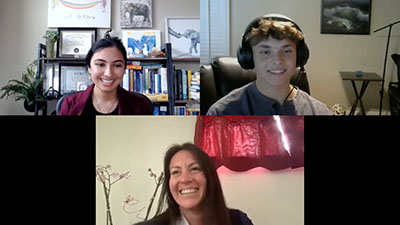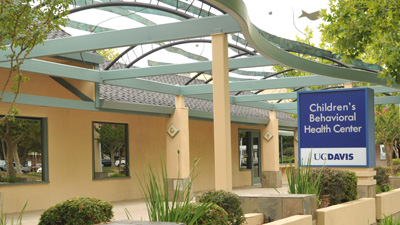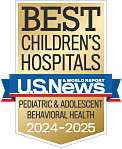Child and adolescent psychiatry
What sets UC Davis behavioral health services apart?
Our psychiatry and behavioral health physicians are renowned leaders in their specialties and are addressing mental health illnesses in children and teens with the latest and most inventive treatment protocols and approaches.
Many are involved in leading-edge research studies which can translate into advances in treatment. For our patients, this unique advantage can mean new options for prevention, diagnosis and treatment – many not available elsewhere in our region – and help for complex conditions from leaders in their fields.
Spotlight on teen mental health
Hudson Prunier, a senior at Rio Americano High school, interviews UC Davis child psychiatry fellow Apurva Bhatt, M.D., and child psychology fellow Christina Aguirre-Kolb, Ph.D., about teen mental health issues for a school project focused on building awareness and advocacy.
Outpatient services
The Child and Adolescent Psychiatry division is in the Department of Psychiatry and Behavioral Sciences on the grounds of the UC Davis Medical Center.
Treatment and services we provide include:
- Consultation and evaluation of a child for mental health and developmental concerns
- Comprehensive psychiatric assessment of a child and teen
- Individual and family therapy including cognitive behavioral therapy (CBT)
- Medication management
To make an appointment
Mental and behavioral health services require a referral from your child/teen’s primary care doctor. To schedule an appointment for your child or teen, have the following information ready:
- Insurance card and/or eligibility information for your dependent child
- List of current medications your child/teen is taking
- Method of payment for your insurance co-payment, if applicable
- If applicable, share any changes in your address, employment, or insurance coverage
For questions, please call our clinic phone, 916-734-3574.
Conditions we treat
Following are some of the conditions we treat:
- Anxiety disorders and stress
- Autism and developmental disorders
- Attention deficit hyperactivity disorder (ADHD)
- Depression and other mood disorders
- Bipolar disorders
- Early psychosis
- Insomnia, sleep disorders
- Post-traumatic stress disorder (PTSD)
- Trauma treatment for domestic violence, sexual / physical assault, hate crimes, human trafficking, others





